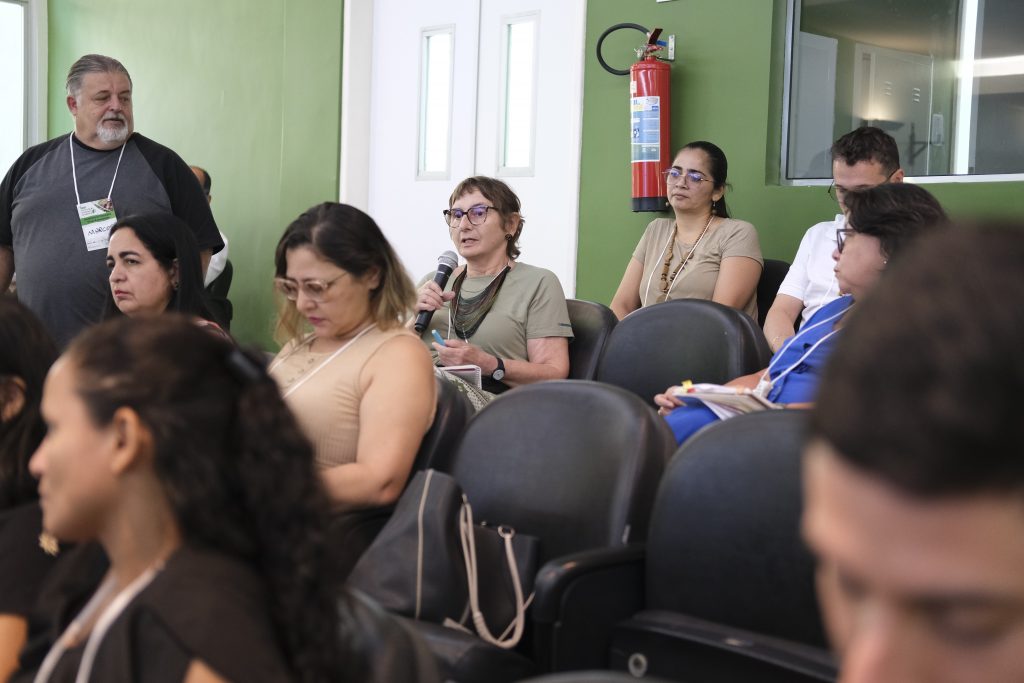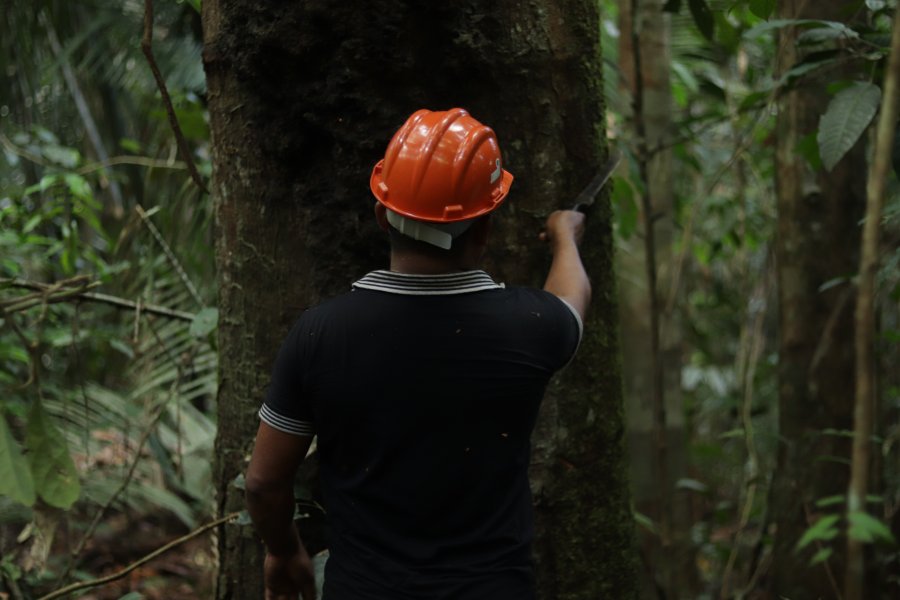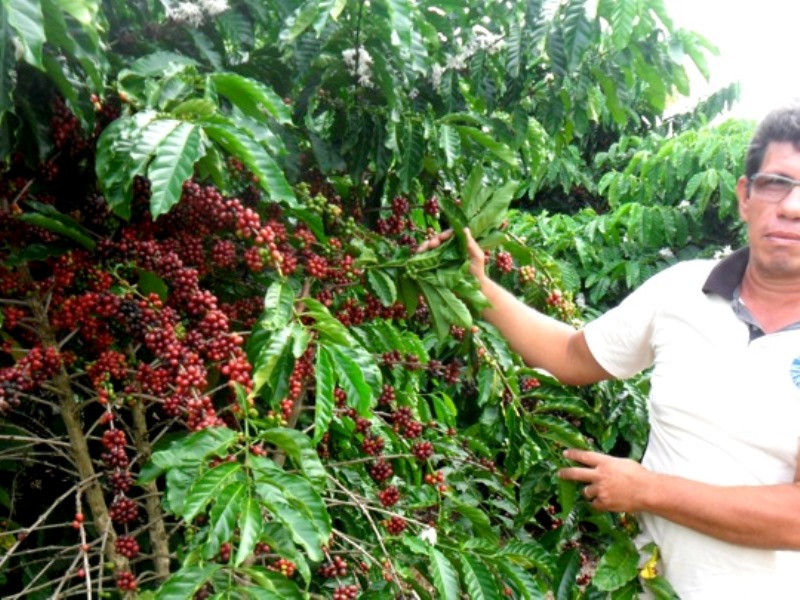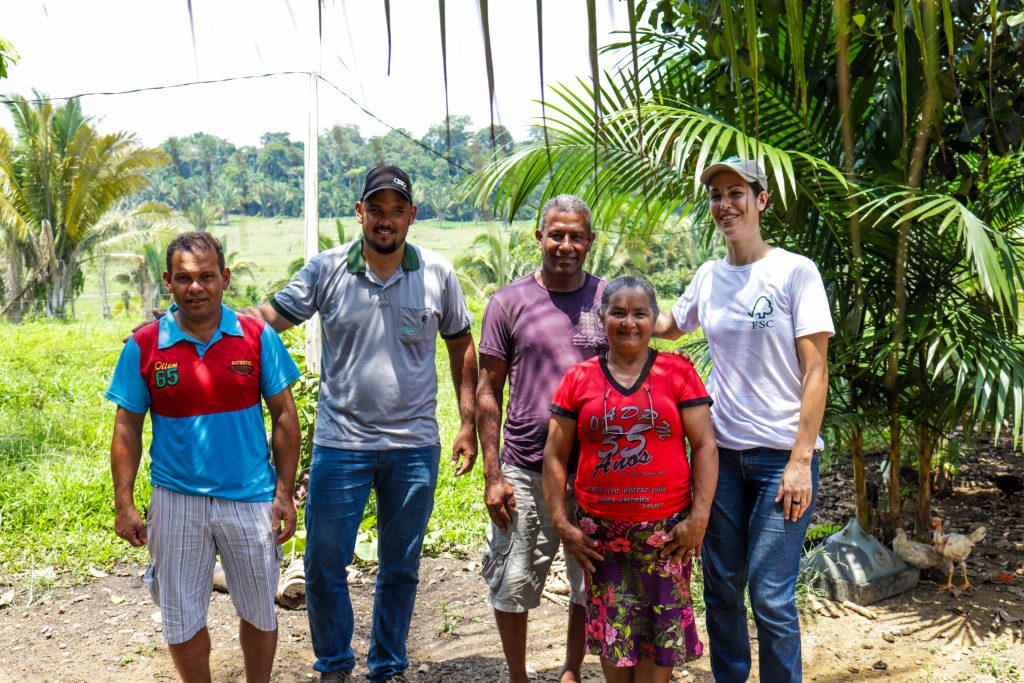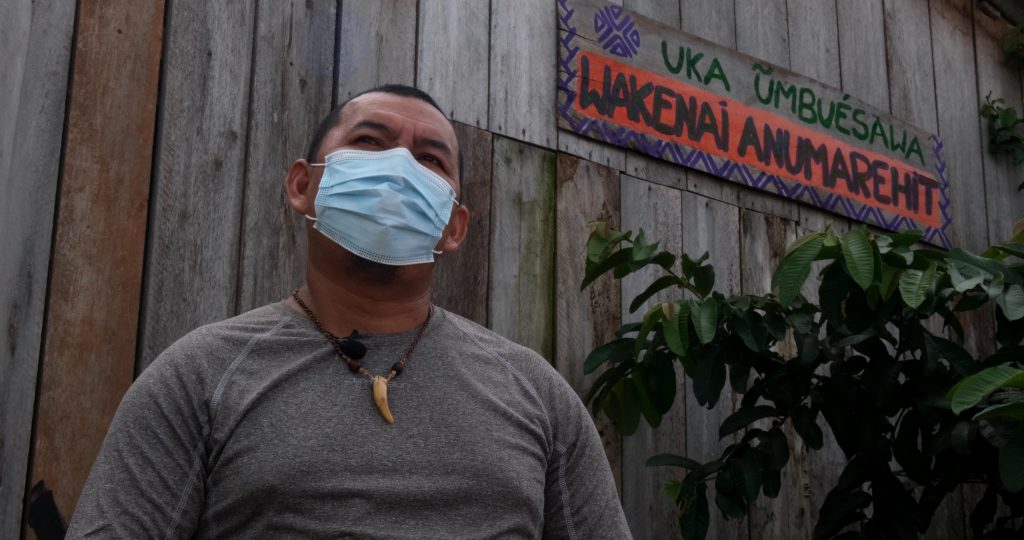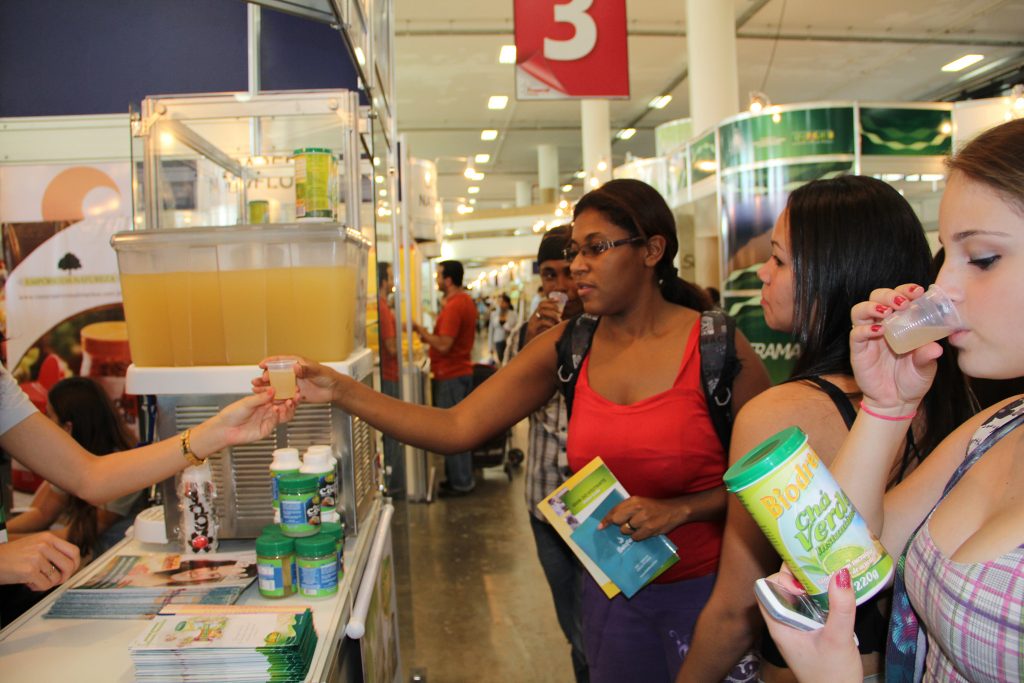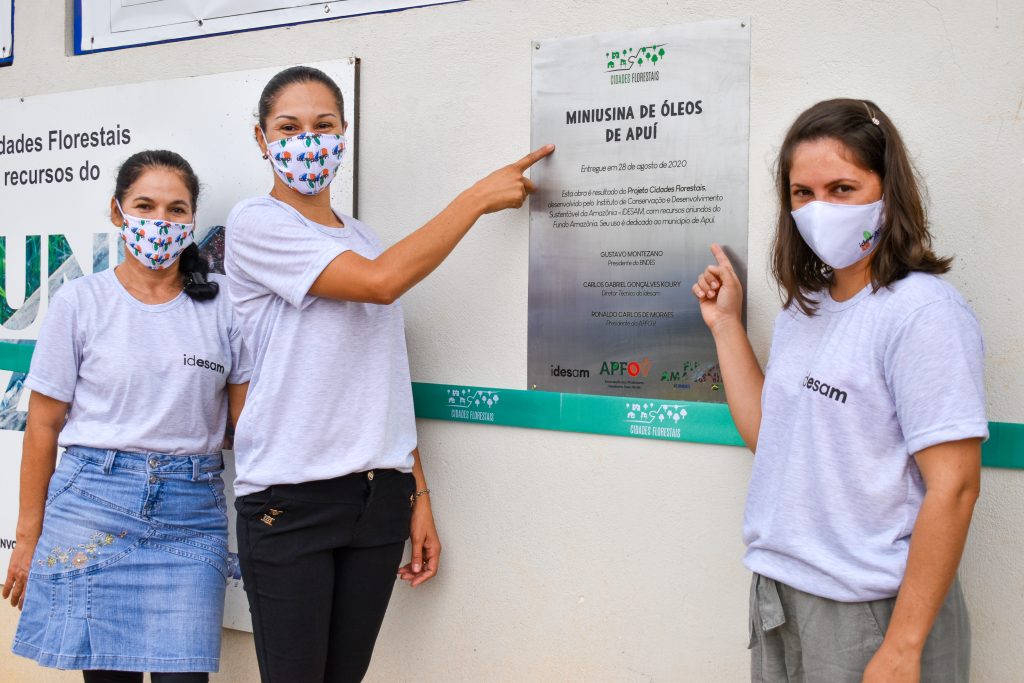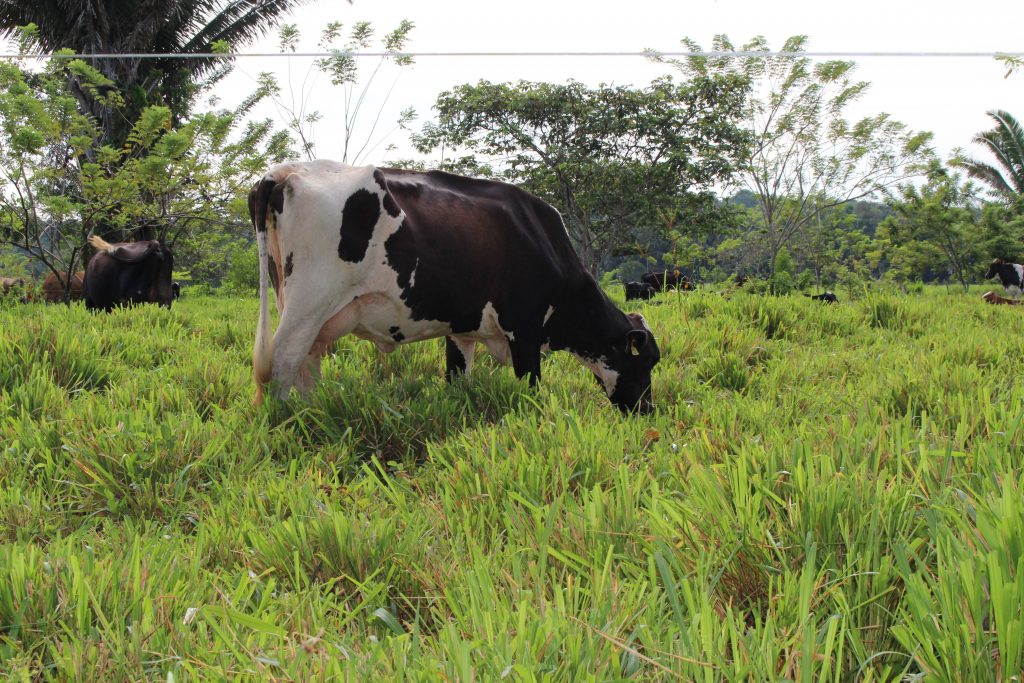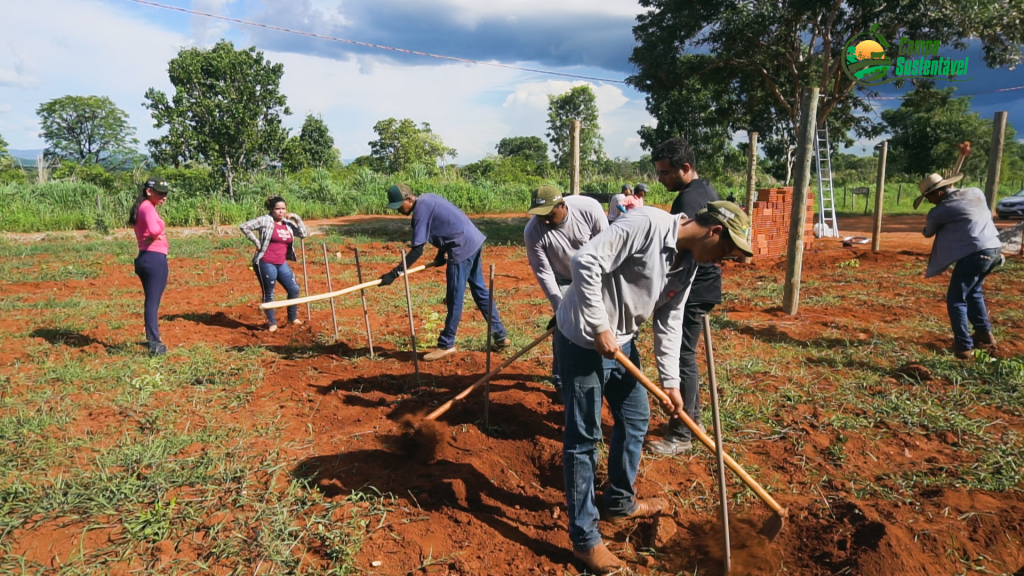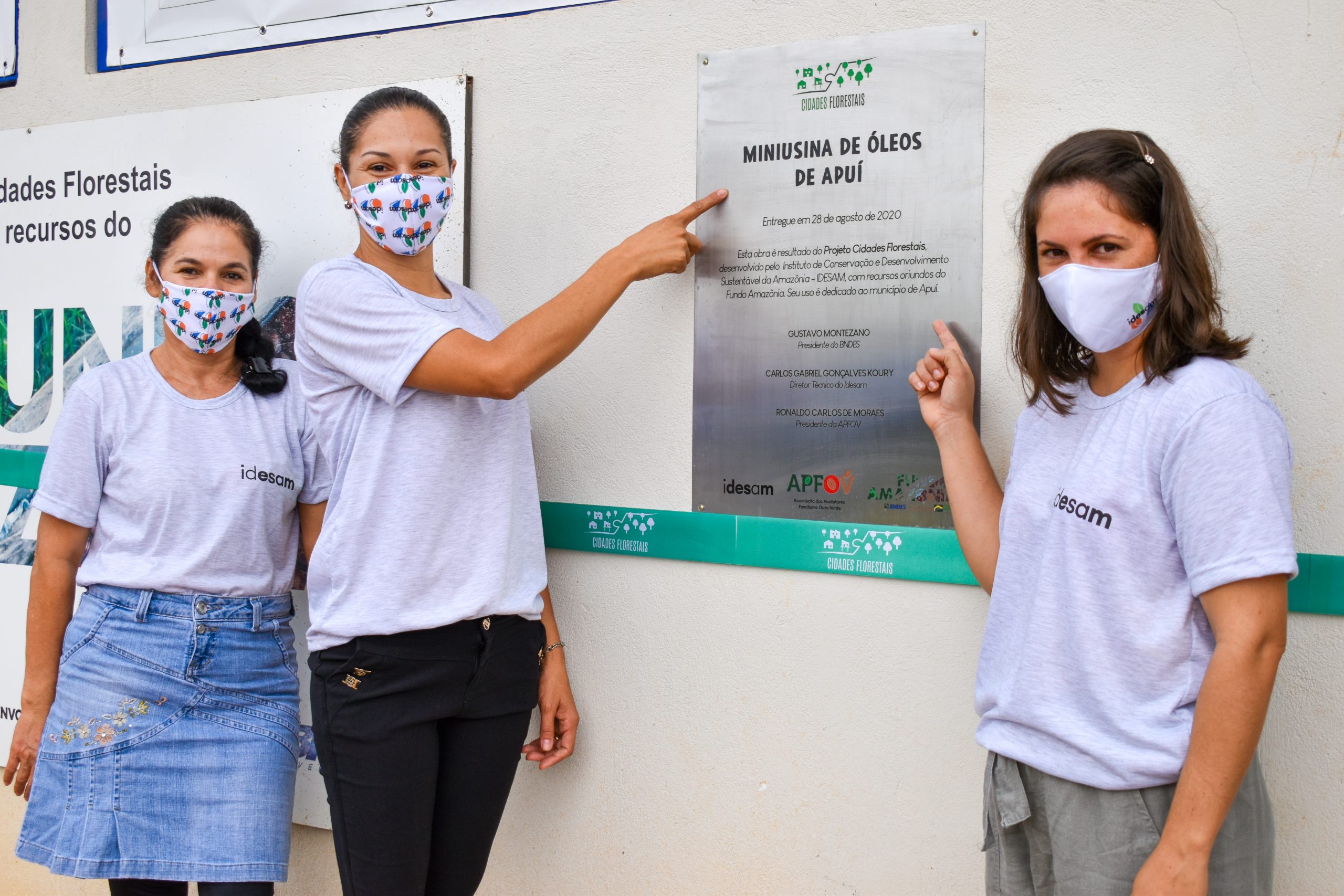
Women and youth stand out in the production of essential oils in Apuí (Amazonas)
Integration of the projects Café em Agrofloresta and Cidades Florestais brought more benefits to the families that are Idesam’s partners in the region
By Henrique Saunier
Translated by Felipe Sá
Photo: Bruna Rozella
For more than a decade working in Apuí (in the state of Amazonas) to disseminate sustainable practices for families that use forest resources to generate income, Idesam supports the structuring and operation of a mini vegetable oil plant, which since last year has already yielded the first positive results for extractivist producers of the municipality, responsible for managing the structure. Women have played a crucial role in the success of the results achieved so far in the entire oil chain that Idesam seeks to promote through projects such as Cidades Florestais (Forest Cities in English).
Whether in the field taking care of the plants that will be transformed into valuable oils, on the production line helping to make sure nothing goes wrong, or negotiating with large companies to bring the products to the consumers, Idesam has a diverse team that is concerned with the inclusion of women and young people in strategic activities. This has been one of the reasons for the successful integration between the organic producing families of the Café em Agrofloresta (Coffee in Agroforestry in English) with the Cidades Florestais project, which has used the raw material of green coffee for the production of essential oils. In addition to another income generation opportunity for these families, this business relationship demonstrates the high potential that the region has for the production of Amazonian oils.
Aparecida Sardinha, local project coordinator who works in the Cidades Florestais project, is one of those responsible for directing the coffee crops to supply oils to the mini-plant. Currently, Idesam’s Apuí Coordination team works directly with the Ouro Verde Family Producers Association (APFOV), located in the Juma River settlement project, and now benefited by the factory structure set up in the municipality with resources from the Amazon Fund/BNDES.
Last year alone, approximately 20 bags of coffee were transformed into oils in the mini-plant, with part of the production serving as samples for promotional purposes, in addition to the first official filling into 30-milliliter bottles. Still done in an outsourced manner by a partner company (Biozer), now the producers are getting technically prepared to also carry out this essential stage in the chain. In addition to coffee oil, the mini-plant has already carried out successful tests of buriti oil and pitanga essential oil – and should carry out tests to produce essential oils of monkey pepper and patauá as well.
The strategy of working in the mini-plant with the same families that already produced the Apuí Agroforestry Coffee has proven to be a wise move. Used to the agroforestry techniques applied in their coffee plantations, the 24 member families can now focus on the cultivation of species that can be used in the mini-plant, which is currently undergoing adaptations to receive certification from the National Health Surveillance Agency (Anvisa). Sardinha explains that choosing to work with species that they already produced was crucial.
“One of the biggest challenges is to find products that have a viable return for the producers. We are working hard on planting aromatics, but we have seen that not all species can be absorbed by the mini-plant, which may not have a financial return from the sale of that specific oil. So we are in a phase of research and tests to find out which are the best species to encourage”.
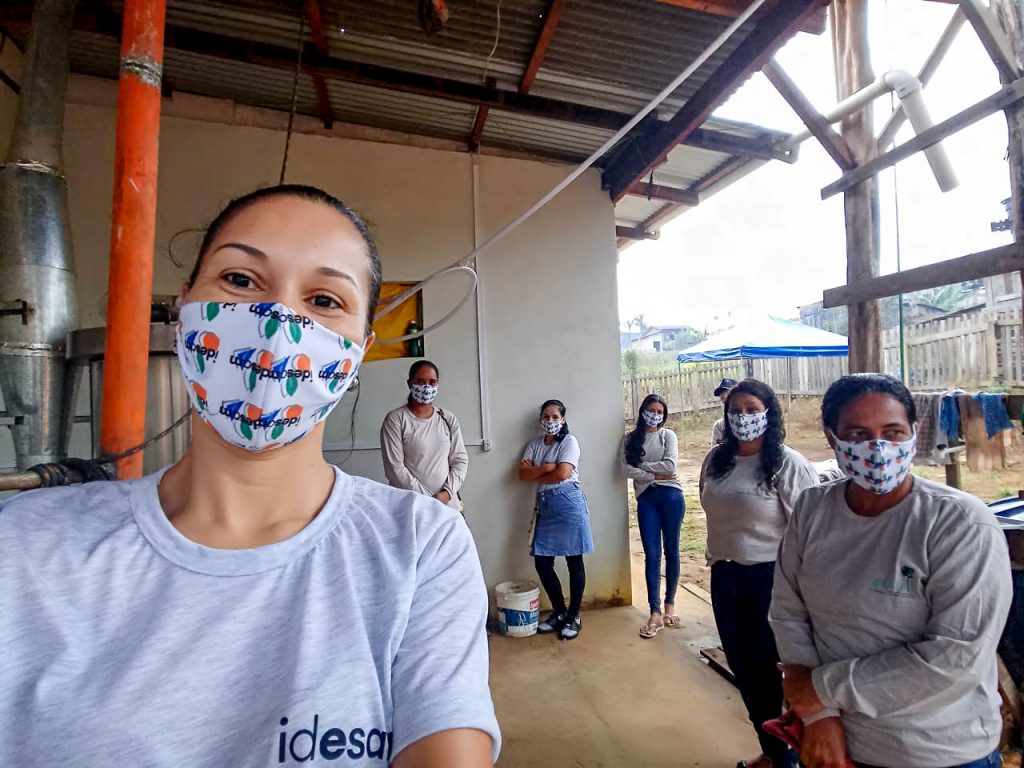
Aparecida Sardinha with part of the team from the mini plant in Apuí (Personal Archive)
“Besides doing the management of the processing plant, the families are benefited with the delivery of the production. It is very common to have this division, where men are occupied with other activities on the land, so younger ones and women end up being more involved in these activities at the plant, which today has six operators and will probably increase with the growing demand for production”, says Sardinha.
Rural producer and production assistant at the Apuí mini-plant, Marluci Correia shares a family tie in all the professional activities she performs. She reports that the experience has been enriching not only for the new oil extraction techniques she is learning, but also for sharing the activity with her 21-year-old son, who leads the production in the structure.
“I got in touch with Idesam’s work more than four years ago, through meetings in the community to work with coffee. We have always produced coffee, but with Idesam we started to produce in an organized way and without pesticides, which adds more value to our product. Now we have started to plant cocoa and we also have vegetables, but not yet organic, because we are working to receive the certification”, emphasizes Marluci.
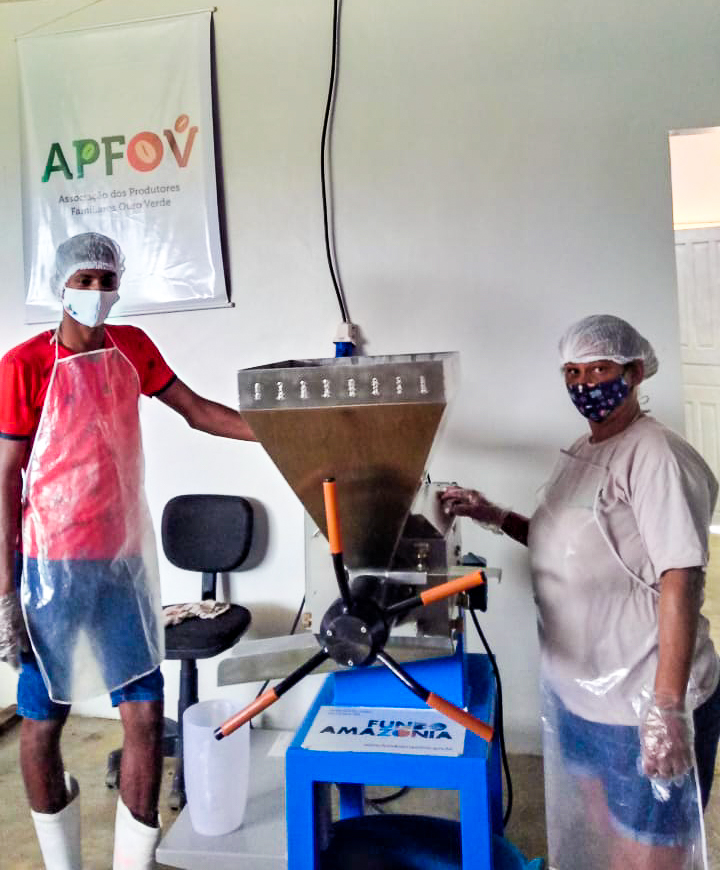
Marluci Correia working at the mini-plant in Apuí-AM (Personal Archive)
Better qualified women and young people
The process of participatory organic certification, which Idesam has helped to implement with support from the Maniva Agroecology Network goes through many stages of qualification. With no break from the new coronavirus pandemic, the meetings, courses and technical assistance still need to be done remotely, as Marina Reia, who since last year is responsible for Idesam’s Coordination in Apuí, reminds us.
“Our plan for this group of women and young people is at this first moment to continue training remotely, via video, podcasts, and handouts. As soon as the pandemic is over, we intend to be together in the field for the more practical part of vegetable and aromatic management”, says the coordinator.
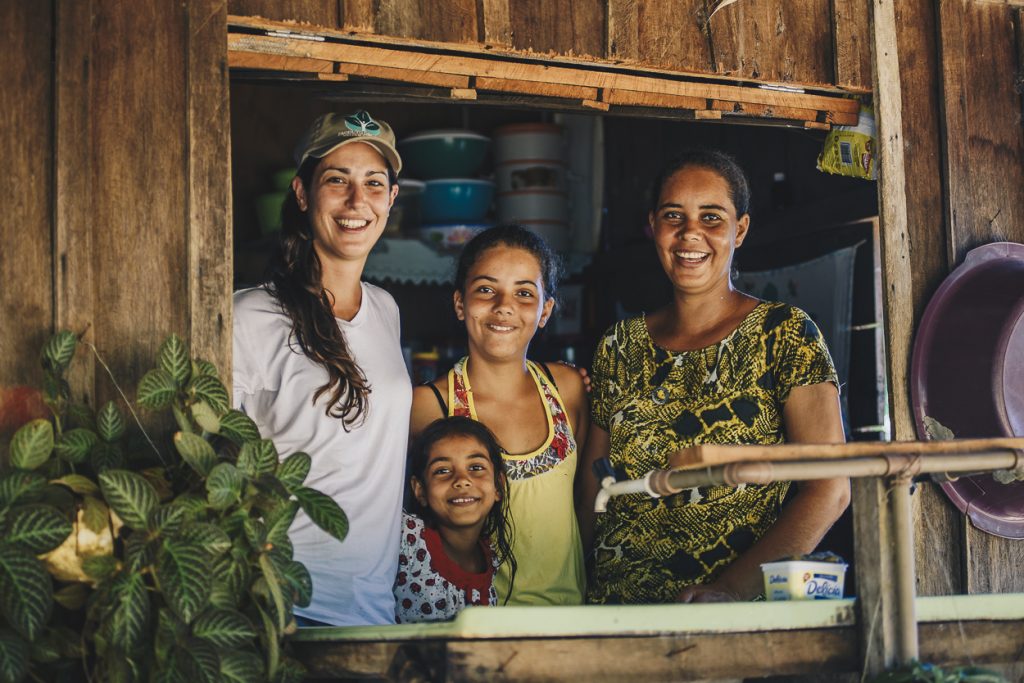
Marina Reia with a producer’s family from Apuí-AM in 2018 (Disclosure/Derek Mangabeira)
Marina Reia is also betting on the advance of organic certification of the producing families in Apuí, confident that there is still room for expansion of the activity in the region. “Every family that is entering the project for the first time and is going to receive the implementation of an Agroforestry System (or SAF in Portuguese), or even the remodeling of their coffee plantation to convert it into agroforestry systems, will receive this complete training package to access organic certification. It is important to emphasize that we not only provide the concepts of the productive part, but we also invest a lot in the social organization until we get to the commercialization stage”, she reinforces.
Aparecida Sardinha adds that all the training process that the families went through (and still go through) to learn how to get the best out of the mini-plant has added even more to their work. “I myself, who am a technician, took advantage of the qualifications to learn Anvisa’s (the National Health Surveillance Agency) procedures and rules. You can’t just plant and extract in any way; you have to know several factors. The trainings themselves are already very important and we are going to do even more trainings with the families, with women, because this adds value to the association itself”, says Sardinha.
A new market for Amazonian oils
Another fundamental link between the producing families and the final consumer is in the hands of Louise Lauschner, an Amazonian native from Maués and the professional responsible for all the commercial part of the products of the collective brand Inatú Amazônia, created to market products from sociobiodiversity supplied by associations and cooperatives supported by the Cidades Florestais project.
“We have a very high investment in the plant and the big challenge is to make the oils produced here be commercialized. The Cidades Florestais project has already commercialized more than R$1.5 million in oils, so besides this investment there is also a return for the participating associations and cooperatives. With the Inatú brand, these groups can sell the oils directly to the final consumer, who has the guarantee that they are buying an Amazonian product coming from a fair trade, where the whole chain is being rewarded in the ideal way”, adds Lauschner.

Louise Lauschner in Idesam’s field activity in the interior of the state of Amazonas (Personal Archive)
The production of coffee oil in the plant was planned with the goal of taking advantage of an already consolidated culture in the municipality, in addition to the opportunity of high market value that the product has. The organization that manages the plant – the same one that develops the activities of Café Apuí – was responsible for the production of 17 liters of green coffee oil, which are now available for sale in 30-milliliter bottles.
“Tests were also conducted with açaí, alfavaca, and citronella oil. For 2021, we expect that just with coffee, we have a return of approximately R$60 thousand for Ouro Verde, referring to the productions of 2020 and 2021, not including the returns with the production of buriti oil, pitanga and copaiba essential oil that will be extracted in 2021”, says André Vianna, manager of Idesam’s Forest Management and Technology Program and coordinator of the Cidades Florestais project. Besides the oil processing plant managed by Ouro Verde, Idesam also provides technical and management assistance to ASAGA, an association of residents of the Agro-extractive Settlement Project that has generated R$300 thousand per year for its members in copaíba oil sales.
According to Domingos Bonfim, Secretary of the Environment of Apuí, people forget that the municipality, before the settlement project, was formed by traditional communities. “With the creation of the settlement, some activities were kind of forgotten, not prioritized for a long time, as is the case of extractivism. The plant will serve these communities that are still involved in extractivism and, besides this, it brings the opportunity to cultivate other species that can be used as raw material for the production of oils. It is very important that this initiative gains scale in Apuí, because we have a lot of demand for this type of enterprise”, he reinforces.
About CIDADES FLORESTAIS (FOREST CITIES) and CAFÉ APUÍ AGROFLORESTAL (APUÍ AGROFORESTRY COFFEE)
Apuí (in the state of Amazonas) is the municipality in Brazil with the 8th highest deforestation rate resulting from unsustainable livestock production and no social gains, what made it the ideal scenario for the implementation of a program aimed at the regeneration of degraded lands. Through the initiative to rescue and value the traditions of family farming, applying techniques of Agroforestry Systems, since 2012 Idesam and local farmers have been working together in the Coffee in Agroforestry project. It offers full support to producers, from the collection of seeds to seedlings production to the marketing of coffee. With all this support in the local chain, the project generated two products: Apuí Agroforestry Coffee (the first of its kind in the Amazon) and Apuí Organic Agroforestry Coffee, which stand out as a sustainable alternative for income generation to fight deforestation. For more information, access https://idesam.org/cafe-em-agrofloresta/
Launched in 2018, The Cidades Florestais project aims to promote the forest economy of municipalities in the interior of the state of Amazonas by supporting forestry, timber, and vegetable oil production chains. The initiative has benefited communities in 09 municipalities in Amazonas. Its actions are developed by Idesam, with support from the Amazon Fund/BNDES. Currently, 13 social organizations are actively participating in the activities, which include the implementation of a digital platform and an application to support the management of community production. Among the initiatives planned and carried out by Cidades Florestais are the acquisition of new equipment and machinery for forestry activities, the installation of an Amazon Oils Network (Rede de Óleos da Amazônia in Portuguese), including the construction of two new mini vegetable oil extraction plants, with structural and managerial support to three other existing plants. To learn more, access https://idesam.org/cidades-florestais/

